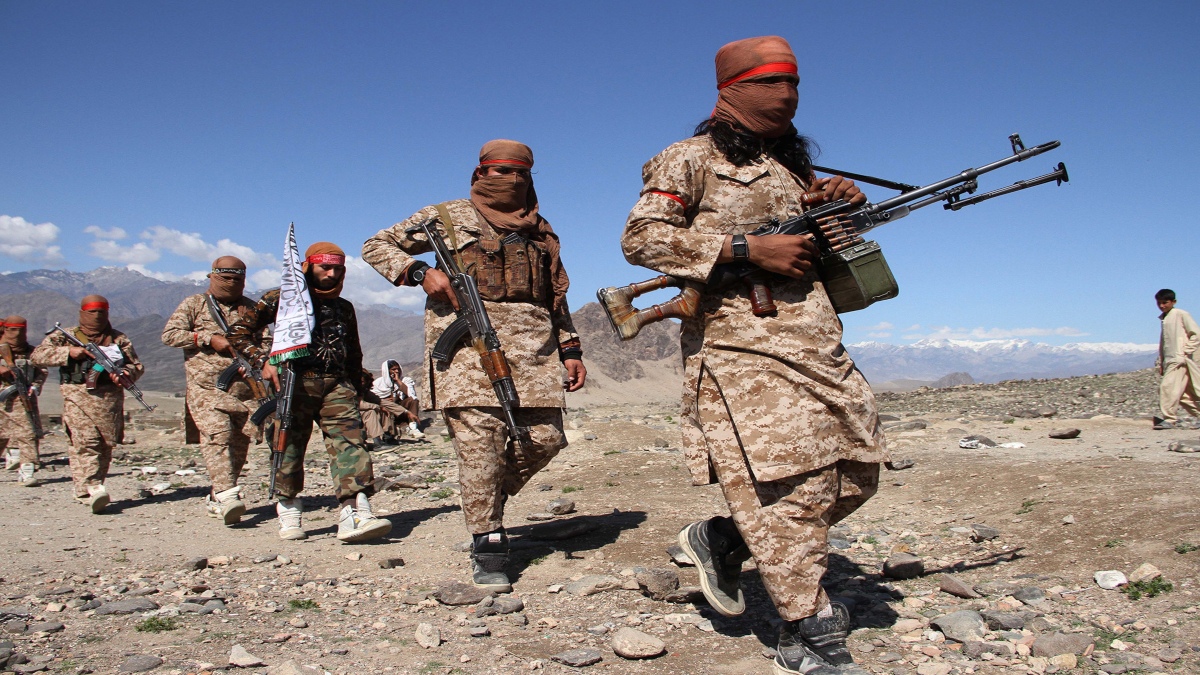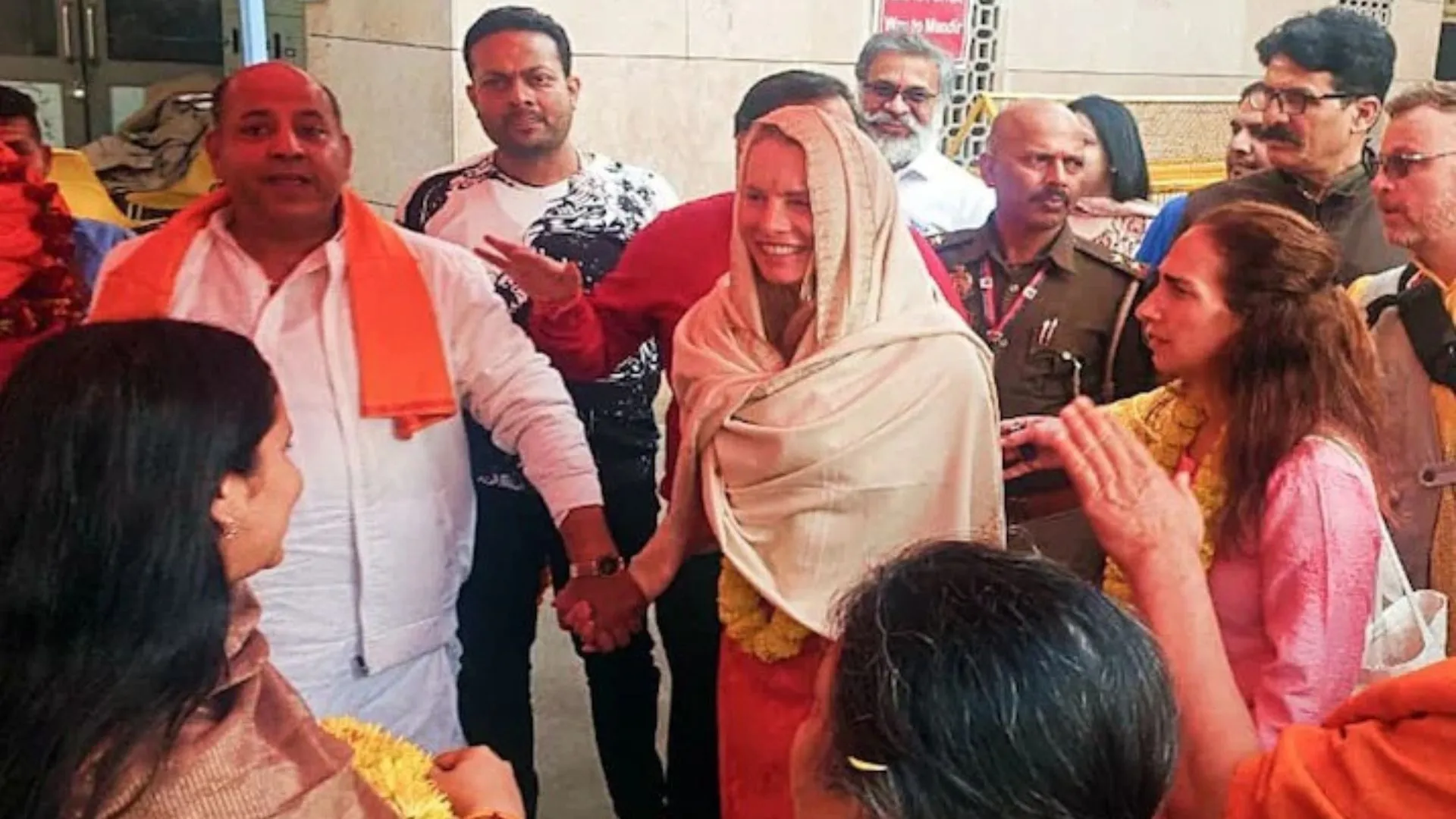The Taliban on Tuesday announced its new government, ending days of speculation and reports of infighting within the group, which apparently delayed the announcement of the new dispensation in Afghanistan. Mullah Mohammad Hasan Akhund, chief of the Taliban’s powerful decision-making body, “Rehbari Shura”, or “leadership council”, will head the new “caretaker” government in the country it had seized control of on 15 August. A hardliner, Akhund was allegedly behind the destruction of the Bamiyan Buddhas in March 2001. He is allegedly involved in several killings and is on the UN terror list. Addressing a press conference in Afghanistan’s capital, Taliban spokesperson Zabihullah Mujahid said that the group’s co-founder, Abdul Ghani Baradar would be the acting deputy Afghan leader. Sirajuddin Haqqani, the leader of the proscribed Haqqani network, a Pakistan-backed terror group, and a US-designated global terrorist, has been named the new interior minister. Mullah Yaqoob, one of the deputy leaders of the Taliban since 2016 and the son of Taliban founder Mullah Omar, will act as caretaker defence minister. Abdul Salam Hanafi has been made the second deputy to Prime Minister Akhund. Amir Khan Muttaqi has been given the post of acting foreign minister in the new Afghan Cabinet.
No non-Taliban figures were immediately announced, an indication that the outfit had not bowed down to domestic and international pressure to create an inclusive regime.
Akhund, the not-so-well-known Taliban leader, belongs to Kandahar and was among the founders of the radical militia. He worked for 20 years as head of Rehbari Shura and remained close to Taliban chief Haibatullah Akhundzada. He had served as foreign minister and deputy prime minister during the Taliban’s previous government in Afghanistan from 1996 to 2001.
The appointment of Mullah Baradar—who headed the Taliban’s political office in Doha—as Akhund’s deputy came as a surprise as Baradar was being considered for the top post. Baradar has been the Taliban’s most visible face in recent years as the group’s chief, Haibatullah Akhundzada, largely stays out of the public view.
As for Sirajuddin Haqqani, the new interior minister, he is the leader of the notorious Haqqani network, which is a US-designated terror group aligned with the Taliban and Al Qaeda. Haqqani has a US$5 million US bounty on his head and is a “specially designated global terrorist” according to the US. He is suspected of organising a series of bomb blasts in Kabul in 2008 and plotting the assassination of then-Afghan President Hamid Karzai.
Taliban spokesperson Zabihullah Mujahid also revealed key figures who will lead the economic and financial departments of the government, with Qari Din Mohammad Hanif taking over as acting economy minister, Mohammad Idris as head of Afghanistan’s Central Bank, and Hedayatullah Badri appointed acting finance minister.
Mawlawi Abdul Hakim Sharie has been named acting minister of justice, and Abdul Haq Wasiq has received the post of acting director of intelligence. Ahmad Jan Ahmady will serve as the acting director of the Administrative Office of the President.
Sheikh Mawlawi Noorullah has been awarded the office of acting education minister, while Abdul Baqi Haqqani will be filling the role of the country’s minister of higher education. Mullah Khairullah Khairkhah, in turn, will become acting minister for information and culture.
SHARIA LAW
On Tuesday, the Taliban’s supreme leader Haibatullah Akhundzada said that Sharia law would be in force in Afghanistan, Sputnik reported.
“In the future, all issues of governance and life in Afghanistan will be governed by the laws of holy Sharia,” Sputnik reported, quoting a statement from the Taliban chief. Akhundzada said that the Afghan authorities will take serious steps to protect human and minority rights “within the framework of Islam”.
‘DEATH TO PAKISTAN’
Meanwhile, in Kabul, chanting “death to Pakistan”, hundreds of Afghans took to the streets and demonstrated in front of the Pakistan embassy, asking Islamabad to stop meddling in the internal affairs of Afghanistan and helping the Taliban. The Taliban fired shots into the air to disperse the crowds at the protest. The protest was led by women, after which a number of men joined them. They held banners and chanted anti-Pakistan slogans, Tolo News reported. “Pakistan, Pakistan, Leave Afghanistan,” a slogan on a signboard read. Pakistan and its notorious intelligence agency have been accused of supporting the Taliban in taking over Afghanistan. Pakistan has been a key player in removing the elected Afghan government from power and establishing the Taliban as a decisive power in Afghanistan. The protesters also chanted “Freedom, freedom”, “Death to ISI”, “Death to Pakistan”.
Several videos appeared on social media showing a group of Taliban men dispersing the women in Kabul, by firing their weapons in the air. It is the latest in a string of small demonstrations led by women around the country. The Taliban forces prevented some journalists from filming the protest. They detained TOLOnews cameraperson Wahid Ahmadi and confiscated his camera.























